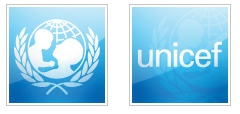Israel's cruel and arbitrary aid regulations dumbfound US Senator Kerry:[Lieberman's] desire for a more starkly Jewish-dominated political system in Israel is linked to the calls he has issued for all citizens to be required to take an oath of loyalty to Israel "as a Jewish state." Back in 2006, he openly called for the execution of any Arab Knesset member who meets with Hamas; and at Yisrael Beiteinu rallies young supporters openly shout "Death to the Arabs" without any party elders intervening to quiet them.
Lieberman has described the "loyalty oath" he calls for as similar to the loyalty oaths that many western countries require of new immigrants when they become citizens. (He himself immigrated to Israel from Moldova at age 20, in 1978.)
Dr. Ahmed Tibi, a Palestinian-Israeli member of the Israeli Knesset who has been a frequent target of Lieberman's wrath, rejects that comparison. "In Europe or America, those oaths are required when new citizens come voluntarily into the state. We never ‘came into' Israel. We were here all along, and the state of Israel came forcibly into our lives... Lieberman himself is the immigrant who now comes in and directs his racism against the indigenous people here." READ MORE
Red-faced and unusually tongue-tied Israeli officials were forced to try and explain to U.S. Senator John Kerry during his visit to Israel last week why truckloads of pasta waiting to enter the besieged Gaza strip were not considered humanitarian aid while rice was.Imagine how immense a tunnel would have to be to accommodate Israel's vast fire-power, including a whole fleet of F16's -- or the number of tunnels required to transport all of the building supplies used in the construction modern day Israel, a wealthy nation with an average annual income of $17,000."Although the situation has improved in comparison to several months ago, the amount of aid allowed in is still too little compared to the pre-blockade scenario," said UNRWA spokesman Sammay Mshasha.
"Furthermore, when the delivery of aid is restricted to an argument of pasta vs rice, then the situation becomes a little ridiculous. No security reasons justify a blockade on pasta," Mshasha told IPS.
"Rebuilding Gaza's infrastructure is vital but the Israelis are not allowing glass in to fix shattered windows. No cement or steel is being permitted in either. We have had construction material waiting in warehouses from 22 months ago, long before the war," added Mshasha.
An estimated 15,000 buildings in Gaza were destroyed during Operation Cast Lead, causing 50,000 Palestinians to flee their homes and seek emergency shelter. Thousands have no home to return to, while thousands of others returned to homes extensively damaged. READ MORE
Ann Wright on the 'prison called Gaza':
How do you rebuild 5,000 homes, businesses and government buildings when the only way supplies come into the prison called Gaza is through tunnels? Will the steel I-beams for roofs bend 90 degrees to go through the tunnels from Egypt? Will the tons of cement, lumber, roofing materials, nails, dry wall and paint be hauled by hand, load after load, 70 feet underground, through a tunnel 500 to 900 feet long and then be pulled up a 70-foot hole and put into a waiting truck in Gaza?
The gates to Gaza slammed shut again on Thursday, February 5, the day our three-person group departed Gaza, having been allowed in for only 48 hours. The Egyptian government closed the border crossing into Gaza, continuing the sixteen-month international blockade and siege. The crossing had been briefly open to allow medical and humanitarian supplies into Gaza following the devastating 22-day attack by the Israeli military. The attacks killed 1,330 Palestinians and injured over 5,500. The Israeli government said the attacks were to punish Hamas and other groups for firing unguided rockets into Israeli, rockets that over the past two years have killed about 25 Israelis. Most international observers have called the Israeli response to the rocket attacks disproportionate and collective punishment, elements of war crimes.
Today, seventeen days after the gates swung closed on Gaza, they remain firmly locked. Cease-fire talks in Cairo between the Israeli government and Hamas are stalled. Opening the border with Egypt is a contentious point in the cease-fire negotiations. READ MORE


